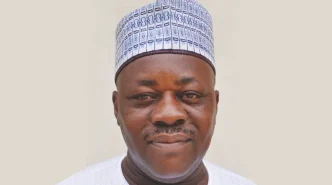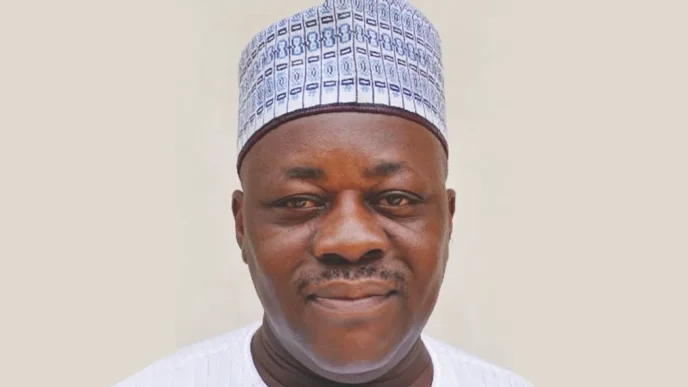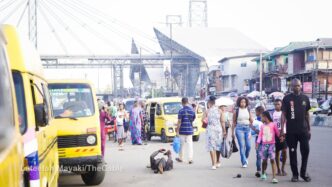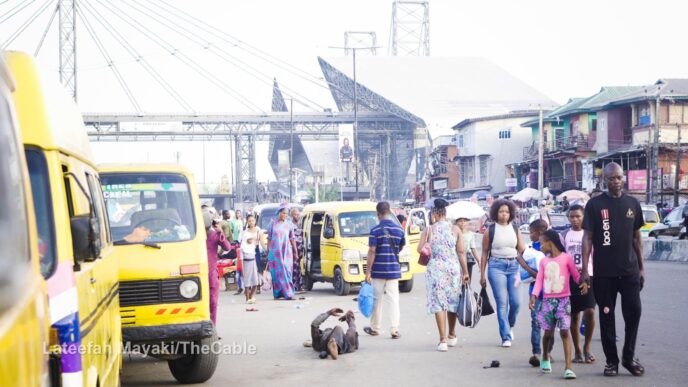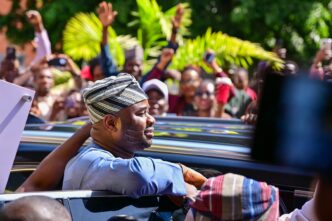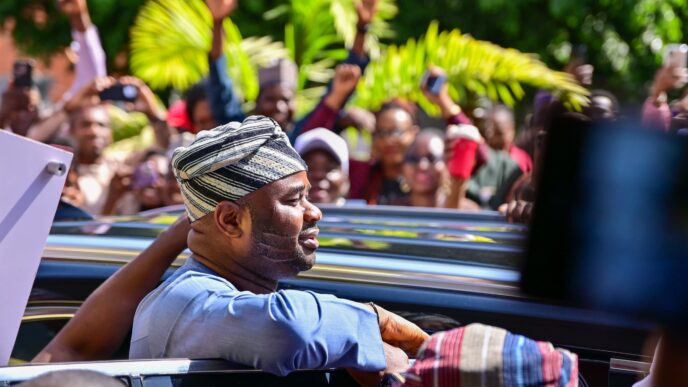Talking about “Investigative Journalism”: it is a subfield of the noble profession of journalism that has gained some kind of astronomical popularity in Nigeria in recent years. Thanks to the growing incidents of corruption in high places among the highly placed, with the paradoxical powerlessness of anti graft agencies in taking on the big fishes. Practitioners (of investigative journalism) have, therefore, been busy carving niches for themselves, thanks to the booming industry of corruption in those high places, especially in the public sector where powerful politicians and public/civil servants hold sway.
This is due to the annoyingly high level of sophistication of those who have chosen corruption as a way of life, particularly in the public sector in the country. In its bid to live up to the divine cum constitutional responsibility placed on their shoulders in Section 22 of the 1999 constitution of the Federal Republic of Nigeria, the press seems to have upped its game too, in line with the age-long saying that: “since the birds have learned how to fly without perching, the hunters too, have chosen to shoot without aiming”.
As a response, the press has decided to switch to the undercover mode, to also show them that, look, we have upgraded too, to match you, wit-for-wit, and possibly out-wit you. Like one of my teachers in the university (I prefer to call my favourite ones teachers, instead of lecturers because, a lecturer would come to the class, talk and leave, while a teacher comes, teaches, and ensures you understand before he leaves, or at worst, before the exams) used to say. This particular one — R. A Iseniyi (now retired) falls into the category of the teachers).
He would tell us, back then in the University of Ilorin that, “I know, you (students) are professional cheats, but we, your lecturers, are professional invigilators too.”
Advertisement
Since most of the public officials manning public institutions in trust for Nigerians resolved that the only area where their creativity would be manifesting is in “corruption”, in keeping up with the provision of the Section (22) of the constitution, therefore, the press too have decided to reach for their hitherto underutilised weapon — investigative journalism. Kudos to the likes of Fisayo Soyombo, Jaafar Jaafar, and Umar Audu, of the Foundation for Investigative Journalism (FIJ), The Daily Nigerian, and the Daily Trust respectively, among others, for an effective utilisation of the journalistic weapon that it represents.
These gentlemen and others have shaken the table of corruption in this country effectively so well that it has sustained irreparable damages to the embarrassment of the owners and custodians.
Now back to the crux of today’s piece. I have always said it that to fix Nigeria, you need the courage and boldness of Fisayo Soyombo to unpack, with a view to diagnosing the problem and applying the needed therapy, or surgery, as the case may be. The FIJ founder’s passions for Nigeria, his job, and chronic hatred for corruption in government institutions are the only things that can explain the risks he has been taking, is taking, and might still be taking in the days ahead, in his bids to reveal “the anatomy of corruption in Nigeria” (apologies to Yusuf Ali, SAN, who authored a book bearing that title).
Advertisement
If you follow him on social media, you’d remember his “Good Morning Nigerian Customs Service” series that he recently embarked upon, wherein he’s been revealing the architecture of corruption in the border areas, especially in the south-west, designed by some of the men of the Nigerian border police. Imagine the risk in taking on daredevil smugglers and their collaborators within the service! Such a daring creature can only be a Fisayo Soyombo. This same guy it was, who engineered his own arrest by men of the Nigeria Police Force, got detained at a police station in Lagos, from where he was moved to Ikoyi prison for an undercover job his ultimate target destination.
To what end? He wanted to expose the colour, the degree, and manner, of corruption in the Nigerian Correctional (formerly, Prison) Service. He also drove what could be equated with a stolen vehicle, from Abuja (the Federal Capital Territory) to Lagos, passing through no fewer than 86 security check points, in a journey of about 726 kilometres, and parted with a sum of about ₦46,000 (forty-six thousand Naira). His mission? He wanted to “experience, and expose” what it takes to steal a vehicle in Abuja, and drive same to Lagos, the Nigerian commercial capital. Such is the stuff he’s made of. In his trade, he’s mastered the art of being steps ahead of the (corrupt) people he tracks and exposes, such that, before they know what had hit them, he’s gotten, sometimes more than, what he wants to expose the crimes and the criminals. Such is his mastery of the trade.
His latest adventure was in the deadly creek of the Niger Delta, where illegal oil-bunkering, one of the cancers affecting Nigeria’s socio-economic development, thrives. It was reported sometimes mid last week that he was arrested at an illegal oil-bunkering site, and was being detained at Nigerian Army 6 Division in Port Harcourt. He was reportedly found at an illegal oil-bunkering site in the very rugged creek of the Niger Delta, after his alleged (purported) collaborators had fled into the bush.
The acting deputy director of 6 Division army public relations, one Lieutenant Colonel Danjuma Danjuma, on Friday, issued a press statement saying that Soyombo was arrested during an operation against crude oil theft and pipeline vandalism in the early hours of Wednesday. But after much pressure on social and traditional media, pressure groups, and non-governmental organisations (NGOs), local and international, he was released about two days later. They, perhaps, quickly realised that if they did not release him, he was going to be like a bony fish, stuck in their throats. This is because, the kind of reaction it has generated, and attention it has attracted, from both local and international NGOs was not what they bargained, or prepared, for.
Advertisement
What caught my attention were four points he raised during an interview he had with Arise TV on Saturday, about a day after he breathed the air of freedom. Let us examine each one of them.
That the army never arrested me
That might sound pleasant to the propaganda arm of the Nigerian military formation responsible for his (arrest and) detention. But, viewed more critically, it is a massive indictment on the security agents. That he was found at the scene of a crime with such a national significance, but was not arrested means, like he said, he was only invited by the alleged collaborators who were protesting the fact that the illegal oil-bunkerers did not “settle” (bribe) some of them. What that means is that, assuming Soyombo is truly an illegal oil bunkerer, and had settled them like he did all the security check points, from Abuja to Lagos, none of us would have heard about Fisayo Soyombo, having granted the Nigerian Customs Service a momentary reprieve from his “Good Morning” series in exchange for this illegal oil-bunkering table-shaking. The “ninistry” would have continued to move on like nothing happened. Meanwhile, the national economy is being seriously hemorrhaged. Ideally, the army ought to have “arrested” him if truly they’re being professional, and above all, patriotic.
“Low trust for Nigerian public institutions”
Advertisement
He said that he was never going to deny the fact that he has “low trust in Nigerian public institutions.” He stated that as a response to the grievance expressed by his arresters that he failed to carry them along while embarking in this kind of task, even though they knew that it (carrying the army, majority of whose personnel might have been compromised) would strip the report of the endeavour of the required objectivity, and by implication, credibility. They would have stage-managed everything he would encounter.
That would be a compromise in his own chosen methodology of experiencing the crime for a genuine first-hand reportage. Doing that also could, according to him, compromise his personal safety. He also backed it up with an anecdote. He narrated a story of how, in another of his previous undercover assignment, he bought a baby from an orphanage for ₦2 million, handed it over to the National Agency for the Prohibition Trafficking in Persons (NAPTIP), coming around intermittently to keep up with the progress of the baby, only for the agency to one day shut its door on him. According to him, NAPTIP told him that he can no longer see the baby. Why? Nobody knows. There has been no account for the baby up to this moment, whether it is alive or not. He holds the immediate past director-general of NAPTIP, Professor Fatima Waziri–Azi, responsible for whatever might have happened to the baby.
Advertisement
I, personally, think he’s had enough (not-so-cool) experience with Nigerian public institutions to last him a lifetime, including the Nigerian Customs Service (NCS). If you follow him on social media like I do, you’d remember a recent video he posted about informants who tipped the NCS about an impending smuggling of contraband. It is said to be those of informants who tipped the service of an impending smuggling of some items that are inimical to the Nigerian economy, and in fact, the corporate existence of this country. Those harmless informants who thought they were only being patriotic and loyal to the fatherland were, in the gory videos, tortured in a dehumanising way by people suspected to be smugglers. They kept hitting them in the head with planks, asking them who tipped off the customs? I doubt if those guys would survive. What I saw in those videos would, at least, reduced their life spans by, at least, 20 years.
Obviously, somebody within the service, who is a collaborator with the smugglers, had sold these informants out to the enemies of the state. So, if Soyombo had carried the security agents along, it could have turned out to be the gravest methodological error he would ever commit in his career as an investigative journalist. The authority of the Nigerian Army were livid over that (not being carried along by Soyombo) nevertheless.
Advertisement
Moles in the army
This number 3 reinforces the number 2. The latter stems from the former. If you’re still at a loss, as to how our troops, regularly, suffer colossus losses (of men and equipment) in the hands of bandits, and insurgents in parts of the country where the army engages in operation, then you need to listen to Soyombo. He said, and I quote: “Now, I have been vindicated because I spent 3 days in military detention. Everything I told the highest levels of the army, the illegal bunkerers were telling me when I left….. Was I not right by not carrying them along?” They made no mistakes about every detail of himself he wrote in his statement at 6 Division of the Nigerian Army in Port Harcourt, according to him.
Advertisement
This explains the reason criminals, insurgents, or saboteurs appear to be steps ahead of those security agents who genuinely have the love of the country at heart and want to go after the enemies. They get wasted in ambush, irrigated by the activities of the state’s enemies within. This is not peculiar to the army alone. It happens in almost all of our security establishments, especially those with prosecutorial powers. In the police force, EFCC or NDLEA, etc. How or why do you think case files of high-profile suspects get missing or even hard evidence develop wings and fly away, mid-way into the prosecution? You can use your tongue to count your teeth. Operatives on a reconnaissance mission, or special operations, get ambushed or left chasing shadows when their targets have a foreknowledge of when and how the squad moves.
Illegal oil-bunkering cannot stop in this country
These are Soyombo’s words, not mine. I understand, appreciate, and share his frustration and despondency to an extent, but I do not agree with him totally that illegal oil-bunkering, or that smuggling cannot be stopped. I do not agree with him because I believe the little he is doing has such a considerable impact on the structure of the empire of corruption than he can imagine. If he realises that, he would agree with me that all we need is just two or a few more of his type doing what he does and the criminal enterprise would crumble.
So, if that national economic sabotage must be eradicated or at least be reduced to the barest minimum, Soyombo has given or is giving the direction in which to focus. He revealed that he discovered illegal oil-bunkerers do bribe officers in different security establishments (formations) that are involved in the anti-bunkering and anti-vandalism operations in the Niger Delta. Remember also that in his report on his Ikoyi Prison odyssey, he said, ‘Set the prisoners free, Jail the Warders’. Something similar came up in the report on his road trip in a stolen vehicle, from Abuja to Lagos. He labelled the Nigeria Police, as “The undisputed kings of bribery”. In his daily Good Morning series to the Nigerian Customs, he re-christened the service as “The Nigerian Customs Smuggling”, to underscore the fact that the operatives of the NCS are actively involved in smuggling. Does it not raise suspicion that in most major markets around the country, most of the traders selling rice are wives or relatives of customs officers?
Looking at all these revelations by Soyombo, it is safe to conclude that the problems have been the unabated corrupt practices by personnel manning these public institutions. They commit crimes that are worse than the ones they were set up to prevent or eradicate. Agencies set up to solve problems have themselves now become our greatest problems. So, fixing Nigeria means fixing them and vice versa. The Nigerian Customs Service, the Nigerian Army (especially those who are involved in the anti-illegal-oil-bunkering operations), the Nigeria Police Force, the Nigerian Immigration Service, the Nigerian Security, and Civil Defence Corps, among others, are too sensitive to our national security in every sense of the word. We must therefore not leave them to wallow in this cesspool of corruption as currently being exposed by Soyombo.
Whoever is desirous of addressing the problems of this country now knows where and what to focus on, given the required political will and the testicular fortitude to step on any filthy toe in the process. I keep the message simple and short. “If you want to fix Nigeria, listen to Soyombo.” The lack of “political will” and the testicular fortitude seem to have been conspiring to irrigate the many evils that have held Nigeria down for more than six decades of her sovereign existence.
It is high time people in positions of authority, people who are in positions to make changes, listened to Fisayo Soyombo, as the young man has done (in my estimation, more than) his bit in the project of fixing Nigeria for Nigerians. He has on several occasions, put his personal comfort, safety, security, and even his life on the line, just to unravel the structure and anatomy of corruption, for the benefits all of us, and those who are genuinely interested in making things work in the country. Listening to what the reports of his investigations say, and acting on them, is key to fixing the many problems, rooted in corruption, inhibiting our socio-economic development. It would be key to the success or otherwise of any effort aimed at fixing our problems.
On a final note, the primary responsibility of any government is to ensure the security of lives and properties. It has become a moral burden for the President Bola Ahmed Tinubu-led government now that nothing must happen to the former editor of “The Cable”. A strand of hair must not go missing from his beard, given what he said in the interview that; “to be honest, it is the first time I’d genuinely felt my security compromised. I believe the acting spokesman deliberately compromised my security by releasing that statement and linking me to oil bunkerers because FIJ announced that I was in detention, but made no mention of oil bunkering. (But) Now you have gone to tell the oil bunkerers, that’s what you did, that look this man was on your trail. Now we’ve told you.“
These are instructive to how much his safety has been endangered. Somebody who should be seen and treated as a partner-in-progress has now been rendered more vulnerable than the rest of us. They’ve made him a potential target for a possible gruesome attack by those who feel threatened by his patriotic zeal, and the noble course to which he’d dedicated his entire being. I do not need a CIA, an MI6, a Mossad, BND, or a KGB to tell me that the smugglers and their collaborators within the Nigerian Customs have a score to settle with the international award-winning journalist, if you know what I mean. I therefore reiterate once again that, the Nigerian government, under the leadership of the president and the Commander-in-Chief of the Armed Forces of the Federal Republic of Nigeria, Asiwaju Bola Ahmed Tinubu, must ensure nothing happens to that patriot of a journalist — Fisayo Soyombo. Nigerians have placed the safety of Soyombo and his likes on the shoulders of the Nigerian governments at all level.
Abubakar writes from Ilorin, Kwara state. He can be reached via 08051388285 or [email protected]
Views expressed by contributors are strictly personal and not of TheCable.



